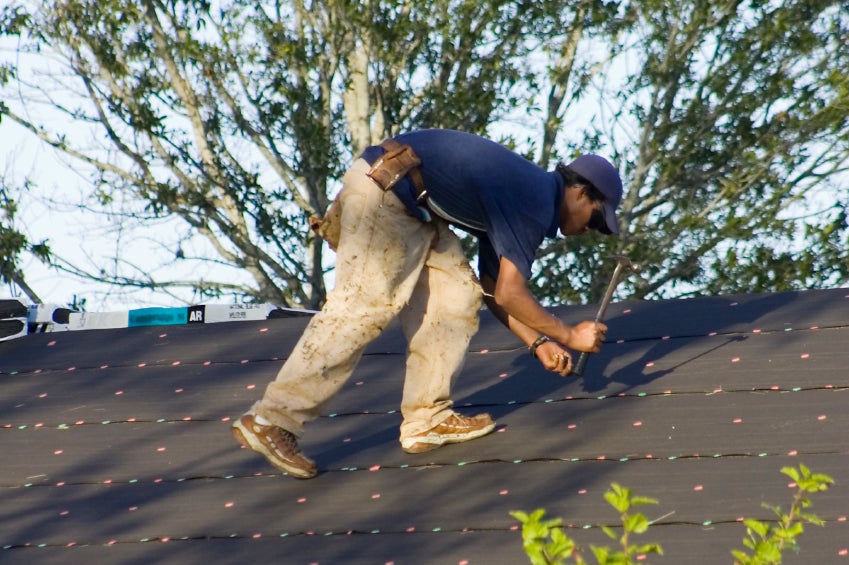Protect your home from flooding

During the winter months, heavy rain is frequently forecast. Not only is it unpleasant, it can seriously harm your property. Following this guide will help you to ward off the damage.
Clear your guttering
Clear your gutter of fallen leaves. These can clog up your draining system and cause water to backup. You can test that the drainage works by pouring water into the top of your gutter. If the water does not move freely through the gutter, it may be that your downspout is obstructed and will need to be dismantled and cleared by hand. If water is pooling close to your house, direct it away with gutter extensions from your local hardware store. An average sized gutter extension cost £20.
Install air brick covers
Exposed air bricks are another common cause of water damage to the home. Installing air brick covers at £8-£20 each will create a water-tight seal. The covers are screwed in place, so you can easily remove them when the rain subsides and reuse them at a later date.
Inspect your roof
Check the roof of your attic for watermarks and mould. These are signs that your roof has already let water into your home. Another potential sign is visible daylight seeping through the roofing material. Any repair work should be left to a professional roofer who can safely rectify the situation. The cost will vary depending on the size of the job, your location and the material that’s needed. For example, a 20 square metre roof that is leaking will cost from around £400 to repair, this cost will vary depending on location.
Fit non-return valves
Calling in a plumber to fit non-return valves to your pipes and drains will stop contaminated water flowing into your property. The valves act as a barrier and push the water back out of the pipes. A plumber will provide you with a legally binding quote for the job.
Raise your electrics (and valuables!)
Hiring an electrician to reposition your fuse or breaker box and sockets higher within your home will protect against costly rewiring jobs after the rain has settled. They should be at least 1.5 metres above floor level in order to prevent a short circuit from occurring. Allowing water near electrical wiring is a hazard, so it is well worth ignoring the temptation to shortcut and hire a cheap tradesman.
A reputable tradesman will quote you a reasonable price for the job. If your local area is prone to flooding this is a worthwhile job, as the consequences of replacing damaged electrics due to flood damage will cost significantly more.
Fit non-return valves
Calling in a plumber to fit non-return valves to your pipes and drains will stop contaminated water flowing into your property. The valves act as a barrier and push the water back out of the pipes. A plumber will provide you with a legally binding quote for the job.
Raise your electrics (and valuables!)
Hiring an electrician to reposition your fuse or breaker box and sockets higher within your home will protect against costly rewiring jobs after the rain has settled. They should be at least 1.5 metres above floor level in order to prevent a short circuit from occurring. Allowing water near electrical wiring is a hazard, so it is well worth ignoring the temptation to shortcut and hire a cheap tradesman.
A reputable tradesman will quote you a reasonable price for the job. If your local area is prone to flooding this is a worthwhile job, as the consequences of replacing damaged electrics due to flood damage will cost significantly more.
Join our commenting forum
Join thought-provoking conversations, follow other Independent readers and see their replies
Comments
Bookmark popover
Removed from bookmarks